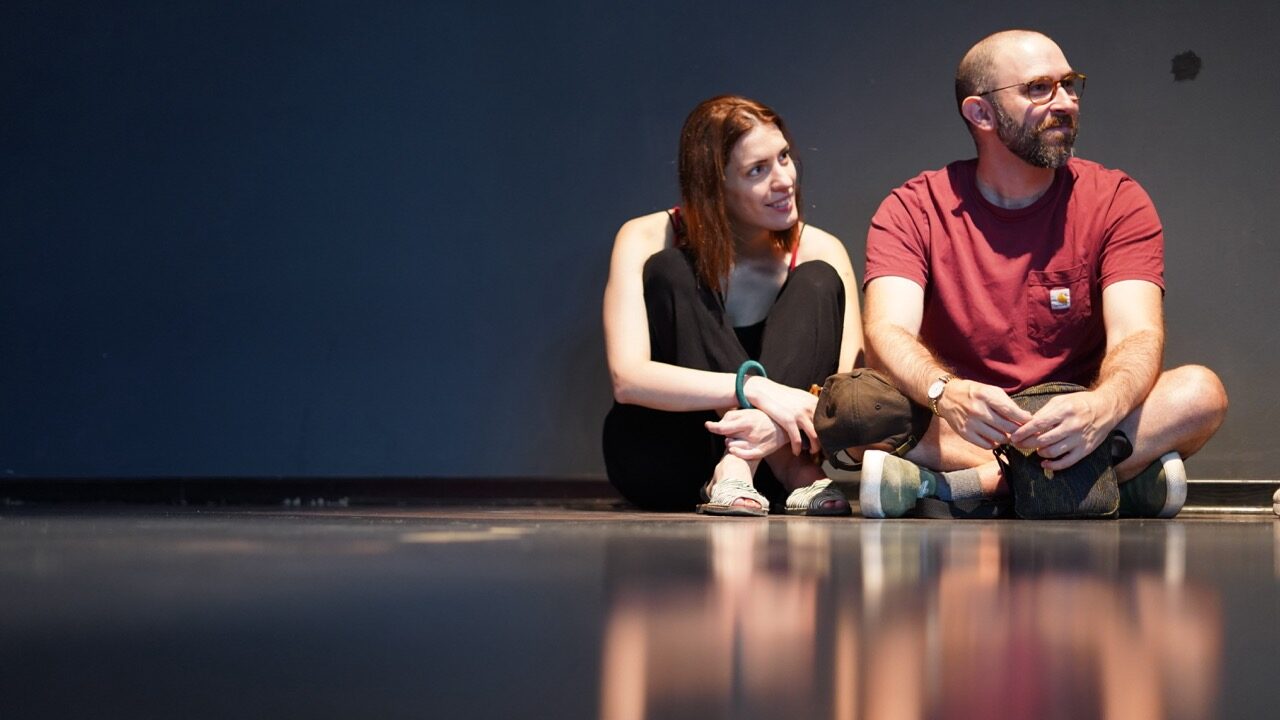
ANA OSTOJIĆ, CAMP PRODUCER IN CONVERSATION WITH ISAAC WASHBORN-KNIGHTS
I had the pleasure of speaking with Isaac Washborn – Knights, an award-winning filmmaker from New Zealand. His short film Money Honey premiered at the 70th Berlinale and went on to win several major awards, including the Wellington UNESCO City of Film Award.
In 2021, he participated in Interaction: Student Film Camp, where he directed a short documentary, Mother’s Milk. The film was screened at prominent international festivals, including Dok Leipzig and ZagrebDox. Since then, he has continued to develop ambitious and engaging projects and is currently working on his first feature documentary, Thorntree.
This year, Isaac returns to Interaction: Student Film Camp as a mentor to a new generation of emerging filmmakers. I was curious to learn more about how he approaches filmmaking, makes creative decisions, and builds relationships with his characters.
In a world saturated with countless events, as a filmmaker from New Zealand with extensive experience working across Europe, what, in your opinion, makes a story important and worth turning into a documentary? How do you recognize a topic that deserves to be explored through documentary film?
Before I pursue any topic, I ask myself, “Why is this a documentary film?” Could it be a book, a poem, or a photograph? If I can convince myself that the topic would be best explored and presented as a film, then I take the first step.
What makes a story important to me is personal connection, and that is particular to each film I’m working on. Most of the time, the reason why I feel a film is important initially is not the same at all by the end of the process. It grows and blooms.
In your documentary work, you primarily use an observational approach, which involves recording events without direct intervention from the filmmaker, as opposed to the participatory approach, which includes active involvement and interaction with the characters. Based on your experience, what are the greatest advantages of the observational method, and what challenges do you most often face while remaining an “invisible observer”?
“Observational” as a definition of my filmmaking is too passive a term. It doesn’t take into account that while I may not be physically present on screen, the film is grounded in subjectivity. I’m constantly making choices and acting upon those choices. What you are seeing when you watch the film is the outcome of all those choices
Choosing not to appear on camera is, in itself, a deliberate tool. It’s a way to let the situation unfold with as little disruption as possible, inviting the audience to engage more actively. That doesn’t mean it’s free from manipulation. No documentary is.
I try to create space for the audience to connect more intimately and interpret more freely what is in front of them. The challenge is maintaining that space without erasing the fact that the filmmaker is still guiding the experience.
During the editing process, every decision about what stays in the film and what gets left out involves both gain and loss — some elements are emphasized, while others are inevitably left behind. What guides you most in making those decisions — dramaturgy, emotion, or ethics? In your opinion, how far can we, through the editing process, drift from what is considered the essence of documentary filmmaking — from reality?
I try to present a fair account of what I’ve witnessed—an interpretation that feels truthful to me, and hopefully resonates with others.
I come from a background in screenwriting, and I find that dramaturgy begins to take shape while I’m filming. I’m organising the raw material of real lives into a form that can carry emotional and narrative weight. I try to stay attuned to the rhythms and arcs that naturally emerge, and I shape the edit accordingly.
Your short documentary Mother’s Milk, which was screened at the prestigious DOK Leipzig, was created as part of the Interaction Camp. Today, you’re in the role of a mentor, supporting this year’s participants as they research and shape their own films. What advice do you give them—how can they move through the creative process most effectively, but also as painlessly as possible? In your opinion, how valuable is an educational-production platform like this for young filmmakers at the beginning of their careers, and what kind of experience does it offer them?
We have a very talented group of filmmakers at this year’s Interaction. I believe the key to their success at Interaction will be to open themselves up to the process and embrace it.
Working under restrictions, be it time, or fresh creative relationships, new environments, or the lack of command over a language, are all challenges that, if embraced, will make you stronger in your chosen craft. I think the learning process never ends in filmmaking, and we should strive to grow and become more complete, not just as filmmakers but as humans, too.
Educational Platforms, like Interaction, offer a unique experience for filmmakers to challenge themselves creatively, to get out of their comfort zone, and work in a new environment. My experience as a participant in the Documentary Film Camp proved to be significant for my career moving forward. The members of the team that I met and first collaborated with during Interaction are people I have continued to work with to this day.
